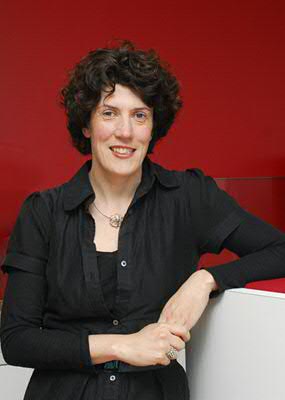Dr Femke de Vries Professor by Special Appointment of Regulary Enforcement

Dr Femke de Vries has been made Professor by Special Appointment of Regulary Enforcement at the Faculty of Law on behalf of VIDE, the professional association for supervisors, inspectors and evaluators.
VIDE’s aim is to further develop the supervisory profession (for more information, please see
videnet.nl
).
De Vries will teach and conduct research in the broad area of regulary enforcement.
Regulary enforcement and supervisory agencies have received major attention in recent years, and not just in the financial sector. Among the recurring issues have been whether supervisors have timely anticipated problems, whether their statutory powers have been adequate, whether they have been sufficiently independent and whether they have been able to adequately explain how they perform their duties. Incidents and new risks typically generate a call for more supervision, while at the same time it is frequently argued that the costs which supervision entails should be reduced.
A relevant question in this respect is what society expects from supervision and whether those expectations are justified. In her research and teaching, De Vries will focus on supervisory developments relating to such issues as how transparency about supervision and the effects of supervision may boost compliance with the stated norms and help to satisfy society’s expectations. She will also look at the relationship between internal and external supervisions.
Femke de Vries (1972) has been Secretary-Director at De Nederlandsche Bank (DNB) [the Dutch Central Bank] since November 2014. As Secretary-Director, she manages DNB’s internal operations and monitors the effective management of the organization. In 2011, De Vries was appointed Division Director of the Supervision Expert Centres, with responsibility for the Market Access, Intervention and Enforcement, Integrity Testing, and Culture, Organization and Integrity Departments. She served as Division Director of Pension Supervision and Investment Firms from 2009 to 2011.
De Vries held various management positions within DNB’s Supervision and Legal Divisions during the period 2005 – 2009. She started working at DNB in 2003 as an examining officer. Prior to this, she worked for the Dutch Tax Authorities, the Ministry of Finance and the Ministry of Justice. De Vries studied Policy and Management in International Organizations at the University of Groningen and Dutch Law at Erasmus University Rotterdam. She graduated cum laude from both programmes. In 2005, she was awarded a PhD for her thesis on the use of administrative fines under the Dutch Customs Act. De Vries is a guest lecturer at Erasmus University Rotterdam and other institutes of higher education. She is a member of the Financial Stability Board Working Group on supervisory intensity and effectiveness.
| Last modified: | 19 January 2024 09.09 a.m. |
More news
-
22 April 2025
Impact | Online advice about right to freedom of assembly
In the coming weeks the nominees for the Ben Feringa Impact Award 2025 will introduce themselves and their impactful research or project. This week: Noor Swart and Berend Roorda, on their online information initiative on the right of freedom to...
-
22 April 2025
How do you shield yourself from Big Tech's power?
How can we all become less dependent on Big Tech? A topical and urgent question that is also arising within the University. Recently, a petition by a group of staff members made the rounds that called for the University to break away from Google and...
-
15 April 2025
The Faculty of Law launches podcast The Right to News
On 16 April 2025, the Faculty of Law at the University of Groningen will launch the first episode of its podcast The Right to News (in Dutch: Recht op Nieuws). The theme of the first episode is: “Can the government just ban organizations in the...
